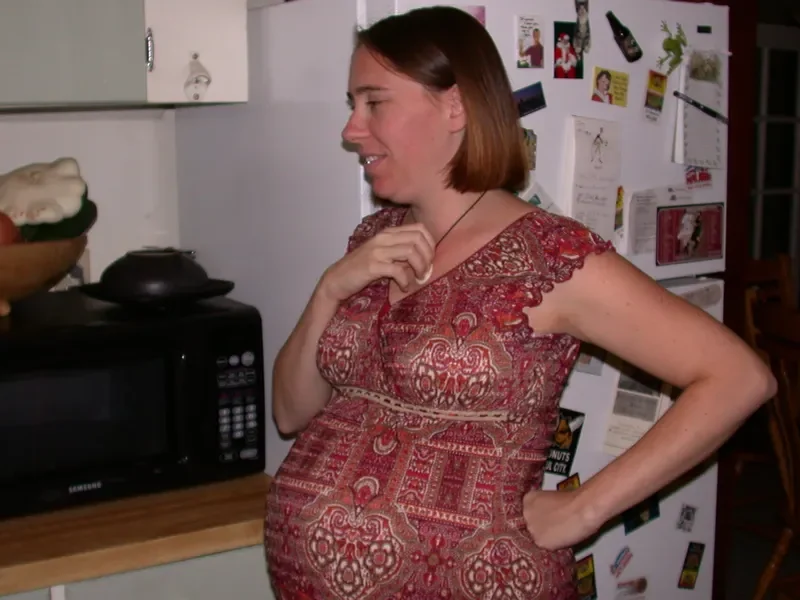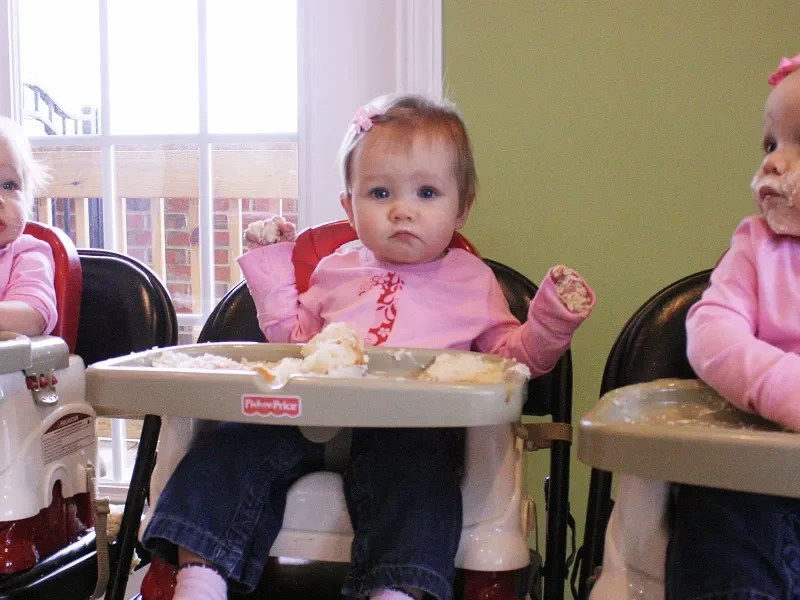At first, I thought the early wake-ups were innocent accidents. But when I found out why my husband was doing it, the silence between us became deafening.
If you asked me a year ago, I would’ve said my husband was one of the good ones.
We’d been married for four years. He made coffee every morning. Kissed me on the forehead before heading to work. Rubbed my back when I had headaches. When our daughter, Isla, was born, he cried harder than I did. I remember thinking — This. This is what partnership should feel like.
I don’t know when that started to change. Or maybe I just didn’t want to see it.
It started subtly, with little things. A light left on at 4:30 in the morning. The slam of a drawer. A whispered, “Hey, do you know where my gym towel is?” like it couldn’t wait.
“Sorry, babe,” he said the first time. “Didn’t mean to wake you.”
The second time? “My keys were under your pillow somehow.”
By the fifth time, it didn’t feel like an accident.
I’d be jolted awake by the sound of him cursing under his breath because his protein shaker lid was missing, or because the door didn’t click shut the right way. Then he’d stand beside the bed and whisper, “Can you just lock the door behind me? I left my keys at work again.”
Again.
I tried not to overthink it. I told myself I was just tired — because I was. I’m still on maternity leave with Isla, and I have two older kids from my first marriage who seem to take turns getting sick every other week. Between school runs, medicine schedules, and Isla’s teething, sleep had become a foreign concept.
But what finally broke me happened yesterday morning.
He stood at the foot of the bed at 4:31 a.m., dressed in his gym clothes and bouncing on his feet.
“Hey,” he whispered, “can you lock the door after I leave? I still don’t have my key.”
I sat up, my throat raw, and voice rasping from being sick for three days. Isla had finally stopped crying around 2 a.m. I hadn’t even hit the REM stage yet.
“Are you serious right now?” I asked.
He blinked. “What?”
“I gave you my spare key three days ago. It’s still on the kitchen counter. You didn’t even try to pick it up.”
He looked away. “I didn’t see it.”
Silence.
Then I said what had been building in my chest for weeks: “Why do you keep waking me up? Every morning. Every damn morning. Is this some twisted game?”
He crossed his arms. “Oh come on. You’re just… you’re always home. It’s not like you have to be up for anything important.”
That stopped me cold.
“What?” I said.
He shrugged. “Look, I just think it’s kind of unfair. I’m up at 4:30 a.m. I go to the gym, I go to work. You’re just… here. Isla’s already old enough. You could be working again.”
My jaw dropped. “So you’re waking me up because… you think I’m not doing enough?”
“I’m just saying,” he said, his voice tight, “if you’re gonna stay home, you should at least be — I don’t know, doing something.”
I stared at him, my mouth dry.
He continued, “It just feels more fair this way. If I’m tired, you’re tired. That’s… balance, right?”
I laughed. It came out jagged. Almost a sob.
“Balance?” I repeated. “You think this is balance?”
“You’re blowing this way out of proportion.”
“No,” I said, swinging my legs over the bed, standing despite the ache in my spine. “I don’t think I am. I think I’ve been giving you the benefit of the doubt, over and over, while you chip away at me. Quietly. Strategically.”
He backed toward the hallway. “I don’t have time for this.”
“You had time to wake me up for a door lock,” I snapped. “You just didn’t have time to respect me.”
He left.
He didn’t slam the door. He didn’t raise his voice. He didn’t need to. He knew exactly what he was doing — and that was what made it worse.
But I didn’t file for divorce that day. It wasn’t some grand act of revenge or defiance. The truth is, I didn’t have the energy, not yet. I was sick, Isla was still sick, and I was running on scraps of sleep and sheer survival instinct.
Instead, I gave myself time. I watched.
I waited.
I wanted to believe maybe that moment, the confession, the ugliness of it had shocked him into seeing what he’d become. That maybe he’d apologize, reflect, or at the very least, stop.
But he didn’t.
He kept waking up at 4:30 a.m. and kept making noise, asking pointless questions in a voice too loud to be accidental. And slowly, I began to realize this wasn’t just a phase or a lapse in empathy. This was deliberate.
He worked 8 to 5 at an office job. That was his big contribution. Not a minute earlier, not a minute later. He’d come home, kick off his shoes, scroll through his phone, and then head out to meet friends a few nights a week. On weekends, he was mostly gone. Out. “Unwinding.”
Meanwhile, I was home, all day, yes but that didn’t mean I wasn’t working.
I’m in college full-time, pushing through a heavy course load, and I’m also working toward a separate certificate in a different field because I have to. I’m building a future for myself and my kids — one that doesn’t rely on anyone else, especially not him.
And even though we live together, he doesn’t contribute a cent toward my school, my kids’ expenses, or anything Isla needs. The rent? Split. The utilities? Split. But when Isla needs medicine, new clothes, food, diapers — that’s me. Always me.
So no, it wasn’t about money.
It wasn’t about chores either. Because those? I did them too. He’d occasionally do his own laundry. Maybe rinse his own dishes. But the rest? Vacuuming bathrooms, dinners, school pickups, night feeds, and grocery lists. It was all me. I was managing everyone’s health — mine included.
So his little justification — that waking me up was his way of making things “a little more fair?” That only made it worse. Because from where I was standing, nothing was fair. Not the workload. Not the mental load. Not the hours. Not the sacrifice.
He wasn’t trying to balance the scales. He was trying to tip them just enough to make sure I didn’t get too comfortable. And the more I sat with that, the clearer things became.
I stopped trying to change his mind. I stopped hoping for accountability. And over the next couple of weeks, I started taking quiet steps.
I called a counselor through school. I spoke with a legal advisor. I mapped out what shared custody could look like for Isla and I checked in with my mom — just in case I needed to stay with her for a while.
By the time I filed the paperwork, it wasn’t a shock to me.
It felt like the natural end of something that had already burned itself out.
Not out of spite. Not out of rage. But because I realized that morning had been the first time I saw him clearly — not as the man I married, but as the man who resented me for not suffering the same way he did.
The day he was served the papers, he didn’t say much. Just stared at them like they were written in a language he couldn’t understand.
“I don’t get it,” he muttered. “It’s not like I hit you. I just wanted things to feel fair.”
I almost laughed. Almost.
Because that was the problem all along, he didn’t get it. He didn’t understand that fairness isn’t about dragging someone down to your level of exhaustion. It’s about lifting each other up, so both people can breathe.
In his world, the only way to make things feel equal was to chip away at me. One early morning at a time. One dismissive comment at a time. But I wasn’t going to keep shrinking to fit inside his version of balance.
Isla is too little to understand now. But one day, I hope she does. I hope she learns that love doesn’t look like silent punishment. That “normal” couples don’t make each other small to feel big. And that sleep, peace, and autonomy are not privileges — they’re human needs. Especially for mothers. Especially for women.
As for me?
I sleep, study, work, parent, and rest. And I don’t apologize for any of it.
I found myself again — not in some big, triumphant moment, but in the quiet hush of a house where no one was trying to control my every breath.
And when he asked, weeks later, still confused, still clinging to the illusion of good intentions —
“But really, was it that bad?”
I looked him in the eyes and said:
“No — it was worse. You just never stayed awake long enough to see it.”


